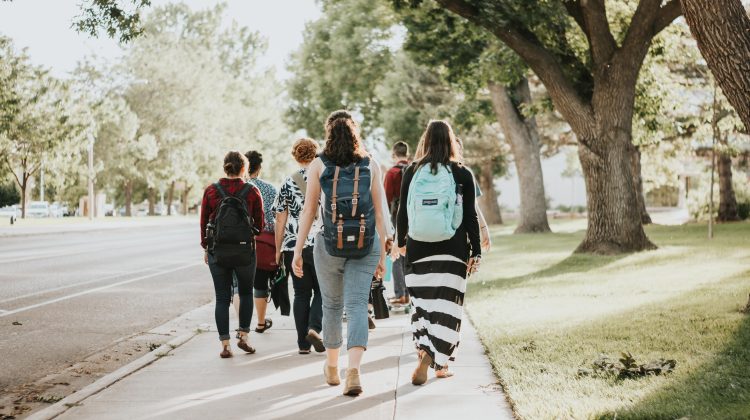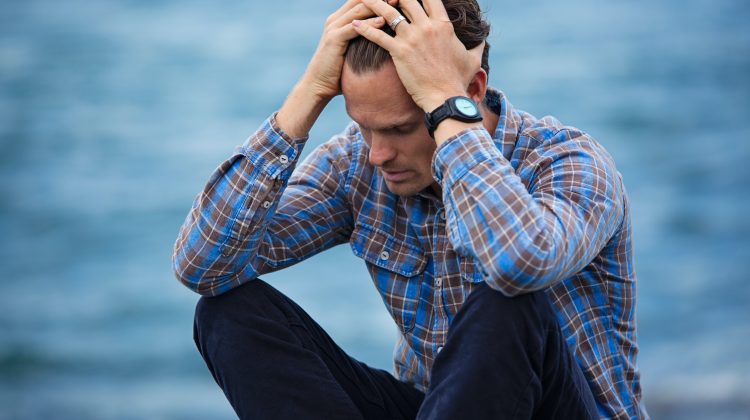It’s early March of 2020. The winters are thawing and the days are growing longer. You’ve been eagerly awaiting a package from your dream school. You don’t normally check, or care about the mail, but everyday after returning home from your senior year of high school it’s at the top of your mind. You find that bulky envelope and open it eagerly in front of some of your closest loved ones. You’ve been accepted to the college you’ve dreamt about for years.
Fast forward one week and your school district sends you and your senior classmates home just months before one of the biggest days of your life. Graduation is done virtually or under social distancing guidelines. Hugs and high fives are substituted for elbows or waves from a safe distance or through glass. Your future and first year of college and adult independence is in jeopardy.
If this sounds familiar you may be, or know, one of the millions of anticipated 2020 college freshmen that have had their short-term futures uprooted from the Covid-19 pandemic. Ideas of living in the dorms, joining Greek life and attending college sporting events have been largely pushed. But your university is still planning on having some sort of in person activities.
With so much confusion and uncertainty revolving around the remaining months of 2020 and the first semester of your college education, it’s of utmost importance to take all precautionary measures available to keep yourself, your professors and your family safe from being exposed to Coronavirus.
How Can I Stay Safe at College in Fall of 2020?
With all of the temptations and fun activities that college has to offer, compounded with the added variable of a pandemic, it is important to keep the bigger picture in mind. Since many of the professionals workforce of a campus’ staff live with individuals that are more prone to Covid, you have to remember to keep these high-risk individuals at the forefront of your decisions. In 2020, every decision now carries a large risk variable, and every risk carries a large decision. Do your individual best to err on the side of caution and you, your family, and society as a whole can benefit in both the short and long term.
By following social distancing guidelines and taking simple measures like wearing masks, washing or disinfecting your hands regularly and maintaining at least a six foot distance between yourselves and others you can help mitigate the risk of transmission. If you have been impacted by a positive Covid-19 test and have faced financial hardship as a result of emergency medical bills, a personal injury attorney that specializes in Covid cases can help negotiate with the appropriate entities including communication with the insurance companies.
Follow CDC Guidelines
Even if you are planning on attending one of the higher learning institutions that do not have a social distancing mandate or plan in place, do yourself, your community and your loved ones a favor and follow the CDC guidelines.
Although these guidelines may be more cumbersome than doing nothing, it’s important to keep the bigger picture in mind. Yes that party on Saturday will probably be fun, but do you want it to be your last party before a trip to the hospital or worse? It may be tough to be a nonconformist with so much temptation at your disposal in your first year of college, but remember that attending social gatherings can not only have a dire impact on your own well-being, but also on your parents, grandparents or other loved ones that are considered high risk. Try to keep things in perspective and play the long game. By implementing this mind set and applying CDC guidelines, you can help facilitate a better environment for everyone you come into contact with.
Some of these helpful CDC Covid guidelines are:
- Stay at least six feet away from other people
- Wear a cloth face covering to slow the spread of the virus
- Prepare for Transportation. If you go out, will you be driving your own vehicle, taking public transit, rideshare etc.
- Choose Safe Social Activities. Not all social activities present an equally safe event in the time of pandemics. Instead of attending the kegger with minimal social distancing in a packed fraternity house without face masks, instead aim for activities like outdoor sport or movie gatherings. Grab a lawn chair and set up from your friends at least six feet away. The virus is much less likely to transmit outdoors opposed to indoors.
- Carry hand sanitizer on your person. Remember to carry sanitizer whenever you leave your living premises. Apply frequently after interactions with others and remember to practice safe hand washing practices.
Is My College Opening in the Fall?
There is no one size fits all answer to this question. Due to the federal government’s lack of mandate, states, counties, cities and local universities have thus been tasked with identifying a path forward for their specific institutions of higher learning. What universities have done in California, are not reflective of what is happening in Alabama and vis-a-versa. To further complicate this answer, public universities and private universities within the same state may have completely distinct approaches and guidelines. Some may be partially implementing in person classes, while others will take a virtual approach. Still other universities intend on operating as normal. Be sure to check the specific guidelines from your institution of higher learning. These things can change daily, so what was the case in June, may not be the case come the beginning of the school year in August or September.
By following the strictest adherence to the guidelines laid out by the CDC, you can help defeat one of the largest global pandemics since WWI. By sacrificing high risk social opportunities in the short term, you can help restore a quicker return to a normal future in 2021 and beyond. This in turn can help minimize the lives lost in the future, and keep yourself and your loved ones at a lower risk of transmission.





No Comment